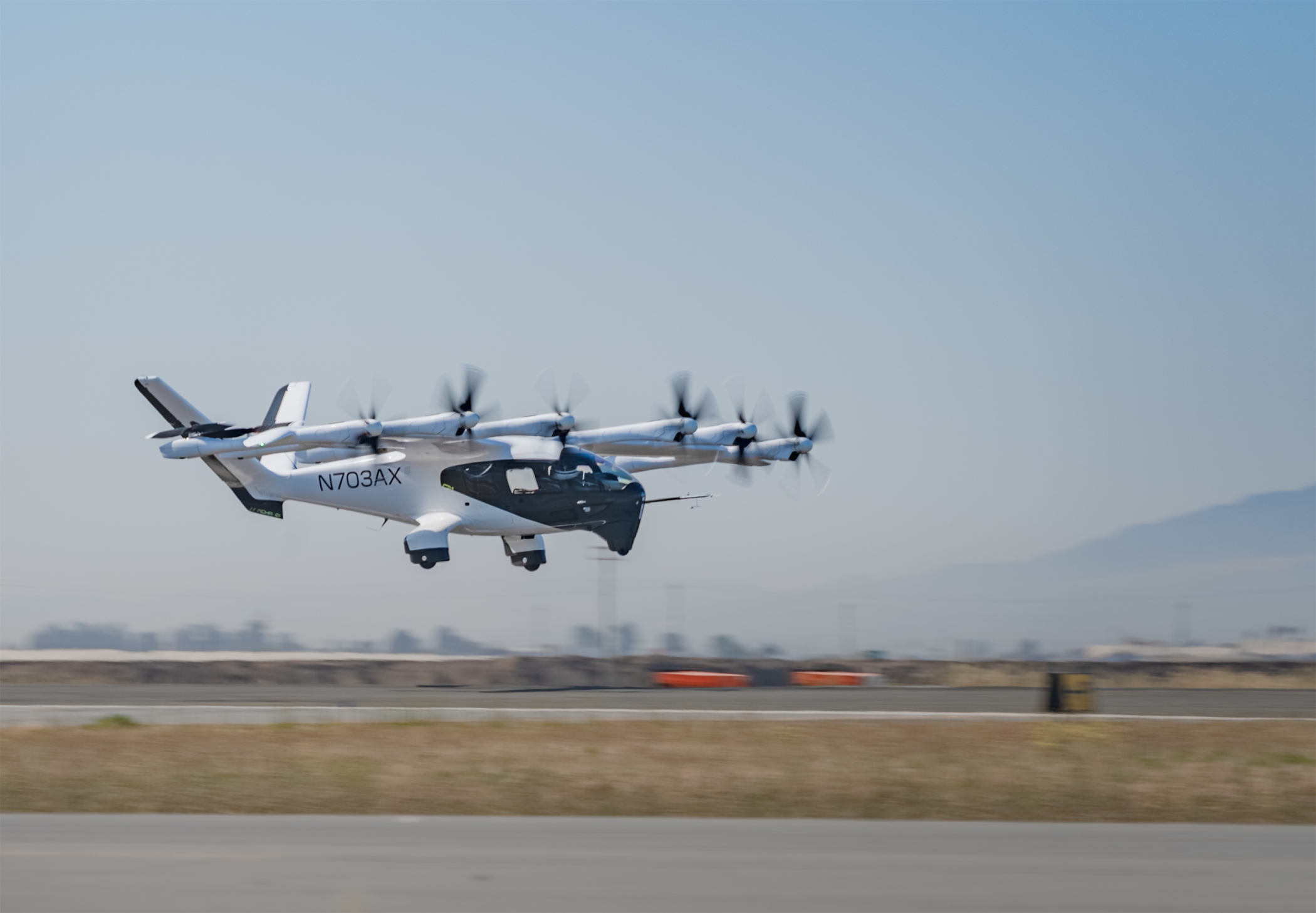A flying taxi company is expanding its Silicon Valley real estate holdings as it prepares to launch a network of air taxis nationwide.
Archer Aviation, which designs and develops flying electric vehicles, inked a full-building deal for 10 W. Tasman Drive in San Jose, California. The agreement with a Copia Lending affiliate, which took control of the more than 105,000-square-foot building last year, marks the largest office lease for the South Bay Area city since the start of 2025.
The company plans to use the Bay Area as a launchpad for its flying electric vehicles. It has leased more than 331,000 square feet of office and industrial space across the Silicon Valley area over the past half-decade, according to CoStar data.
Backed by aerospace giants like Boeing and Airbus, as well as deep-pocketed startups like Joby Aviation and Archer, electric vehicle takeoff and landing, or eVTOL, companies have raced to build prototypes aimed at short-distance urban trips, freeing drivers from traffic congestion and getting them places faster. Archer's four-seat Midnight is designed to fly up to 150 mph and land with noise no louder than a vacuum cleaner.
The Federal Aviation Administration cleared a major regulatory hurdle for eVTOLs this year by finalizing their operating rules, including pilot training, minimum altitudes and safe operating environments. This marked the FAA's first entirely new aircraft category since helicopters in the 1940s.
Archer's new San Jose building is about half a mile from its headquarters at 190 W. Tasman Drive. The company fully leases the nearly 100,000-square-foot complex, though its deal is scheduled to expire in late 2026, and the property is currently being marketed for lease, according to CoStar data. It also occupies an ancillary hub at 77 Rio Robles.
Beyond San Jose and Santa Clara, Archer's real estate portfolio includes outposts in nearby Silicon Valley suburbs such as Palo Alto and Mountain View.
Lease lifeline
Archers's new lease represents a lifeline for the struggling Silicon Valley office property.
The 10 W. Tasman complex has faced years of financial challenges, ultimately resulting in the lender's seizure of the property last October. In late 2020, an offshoot of Korean investment firm Soulbrain Holdings Co. acquired the building from DivcoWest as part of a $160 million three-property portfolio deal.
The impacts of the pandemic left Soulbrain scrambling to not only land a tenant to fill the property but also meet its financial obligations for it. The firm tried filing for bankruptcy to avoid foreclosure but ultimately couldn't remedy months of missed loan payments, resulting in the property's seizure, records indicate.
The Tasman Drive building has been sitting empty since semiconductor equipment maker ASML vacated it in the earlier years of the pandemic as it scaled back an earlier deal to fill all three of the properties DivcoWest then sold to the Korean affiliate.
However, Archer's full-building commitment is helping reset the property's trajectory alongside its aggressive growth plans.
While not yet profitable, the company landed $850 million in financing earlier this year to help accelerate its plans to manufacture, mass produce and deliver electric aircrafts worldwide. Archer has steadily increased its capital expenditure budget to finance "investments in people and vendor-related spend to support our current phase of development, testing efforts and operational scale-up," company executives told analysts on its latest earnings call.
Building back demand
Archer's Silicon Valley expansion is part of a growing parade of deals in the region in which tenants increasingly take on larger and larger blocks of space.
After years of pandemic-driven downsizings and a record spike in sublet availabilities, many landlords in the tech-concentrated hub are now pointing to the return of deals that span upward of 100,000 square feet as the clearest sign yet of Silicon Valley's market rebound.
Hudson Pacific Properties, for example, reported a nearly 10% bump in tour activity across its Silicon Valley office portfolio compared to this time last year, executives of the Los Angeles-based real estate investment trust recently told analysts, hitting its highest level of activity in more than two years.
To be clear, Silicon Valley's longstanding dependence on the tech industry has made it especially vulnerable. The region's vacancy rate of more than 16.5% is at its highest point in 20 years and is higher than the nation's vacancy rate of 14%, according to CoStar data.
The area is beginning to show signs of stabilization, though, aided by deals from big-name companies such as Nvidia, Apple, LinkedIn and Amazon.
That resurgence of tenant demand meant the region in the second quarter reported its highest quarterly leasing total since 2022, according to the data. And with companies such as Archer still hungry for more space, that figure is largely expected to remain on the upswing as the area solidifies its reputation as the world's most powerful tech hub.


